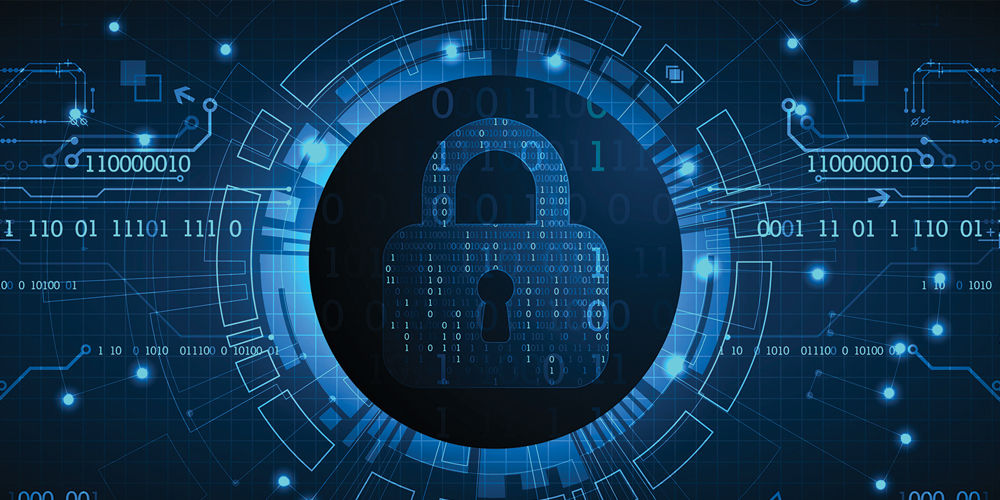Since the pandemic, the phrase “digital transformation” has evolved from being a trendy term to being a critical step for businesses to remain competitive. Today, close to 90% of business leaders think that digital transformation will affect their industry. As a result, close to 60% of companies have prioritized digital transformation — and commercial AV integrators are no exception.
As the physical and cyber worlds become even more intertwined through the Internet of Things (IoT) and cloud-based technology, AV integrators will find it more challenging to focus on AV/IT systems integration without prioritizing cybersecurity. But challenges create opportunities.
With the proper framework, integrators can leverage their expertise to expand their services and provide more value to their customers. This article will explore three reasons why it makes sense for AV integrators to prioritize cybersecurity.
1. Convergence Requires Collaboration With IT Departments
Since the early 2000s, AV and IT have been on an accelerating course of convergence. In a relatively short time, we’ve seen three different types of systems — audio, video and data — converge to travel over IT networks. Moreover, because AV and IT are now so intertwined, a physical environment’s telecommunications infrastructure affects how well audiovisual systems function (and vice versa).
Having intermingled AV and IT environments is essential for many organizations to compete effectively in today’s digital economy. Still, unless AV integrators make cybersecurity a priority, they will not be able to benefit from this ongoing transformation. AV integrators that showcase their cyber training and preparedness can differentiate themselves from reactive integrators that rely on manufacturer support and good luck.
Let’s state things plainly: Gone are the days when enterprises and clients looked to AV integrators just to install an AV/IT system, without any cyber concerns. In today’s organizations, IT departments manage AV technology after it’s installed. That makes effective collaboration with the integrator a must.
2. New Workspaces Demand Cybersecurity
Automation and IoT have become essential for organizations, especially during the past 10 years. Recent estimates calculate that there are more than 27.1 billion internet-connected devices — that calculates to more than three devices for every person on the planet.
The challenge for AV integrators is that everything from a building’s critical climate-control system to its access-control systems are vulnerable to attack. More than a billion IoT device breaches occurred in 2021, a statistic that explains why an increasing number of AV integrators are either including or thinking about implementing cybersecurity solutions as part of their offering.
A staggering amount of AV technology is now connected to enterprises’ networks. AV integrators that lean into that new reality and establish a central point of accountability internally for cybersecurity matters will have a leg up on firms that refuse to address IoT vulnerabilities head on.
3. Cybersecurity Creates Sales Opportunities
Digitization is only going to speed up. By 2023, it is anticipated that global spending on digital transformation will surpass $6 trillion. What’s more, leading technologists predict that, by 2030, connectivity will affect every aspect of daily life, both physically and psychologically. If that is the environment we are moving toward, AV integrators must take a proactive approach to cybersecurity now to futureproof their business for tomorrow.
And, in fact, many AV integrators are coming to discover that having a cybersecurity strategy isn’t just good practice, but, in fact, can be a powerful sales tool. Again, the data tells the tale: Cybersecurity risk is a leading concern for 66% of small businesses, and a whopping 47% of firms don’t know how to defend themselves against online threats. By prioritizing cybersecurity, AV integrators can send a powerful message to their clients: Your information is safe, and we can confidently meet any requirement in your RFPs or vendor cybersecurity assessment.
The bottom line is that enterprises of all sizes are prioritizing cybersecurity, and they want their project partners to do the same. Failing to do so will seriously harm an integrator’s chances of success.
Final Thoughts
As digital transformation accelerates, AV integrators’ objective remains the same: Seamlessly coordinating and linking various AV/IT subsystems to counter ever-increasing threats. Integrators do this by leveraging technology and effective client collaboration.
The good news for AV integrators is that, by leaning into cybersecurity as core competency, they can expand their service offerings, deliver greater value and position themselves as a strategic partner for years to come.
To read previous Commercial Integrator coverage of cybersecurity issues, check out our website archives.
 Patrick Chown is the owner and president of network installation company The Network Installers.
Patrick Chown is the owner and president of network installation company The Network Installers.










